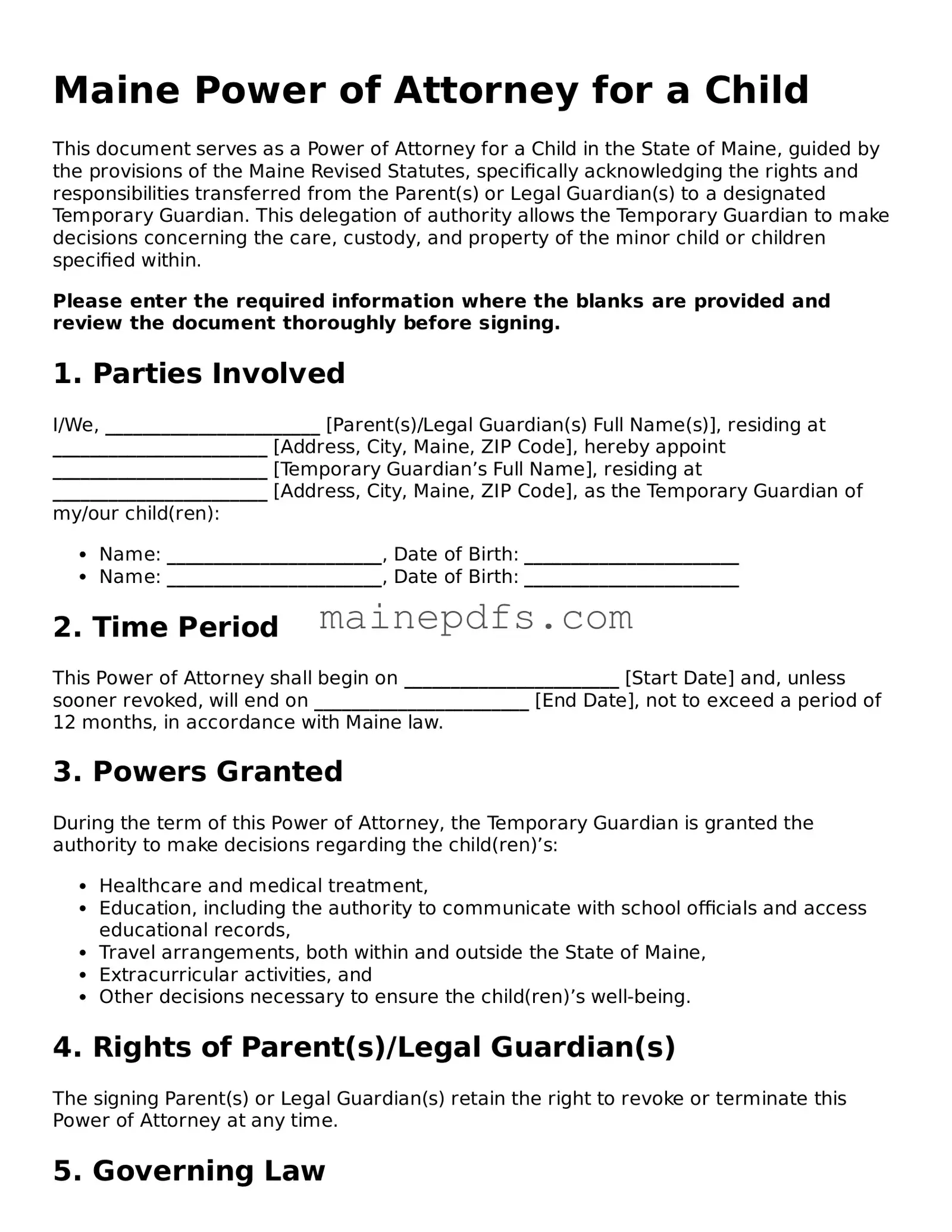Attorney-Approved Maine Power of Attorney for a Child Template
The Maine Power of Attorney for a Child form allows parents to grant someone else the authority to make decisions for their child in their absence. It's a legal document tailored to ensure that a child's needs are met even when their parents can't be there. For those ready to secure the well-being of their children with this form, click the button below to get started.
Make My Document Online

Attorney-Approved Maine Power of Attorney for a Child Template
Make My Document Online

Make My Document Online
or
Click for PDF Form
A few steps left to finish this form
Finish Power of Attorney for a Child online — no paper, no scanner needed.